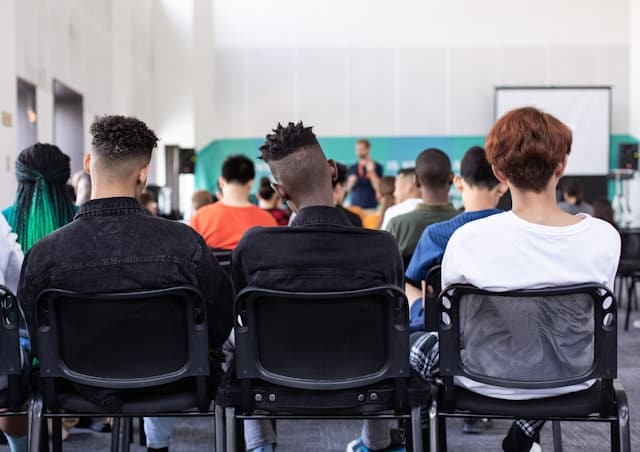Getting a high CGPA in your first year at the university is fundamental to graduating with a first-class degree. Because obtaining a poor grade at this level will affect your academic performance throughout your stay in school.
Like you, I dreamed of graduating with a first class when I got admission to the University of Nigeria. I already saw myself standing on the podium at the convocation arena, receiving the award for the overall best-graduating student to the admiration of my parents and family.
It is good to want the best; you must be the best at whatever you do, including academics. But, there are a few challenges that you must overcome if you want to get the best result in your first year at school.
As a university graduate, I would say from my experience the number one hindrance newly admitted students encounter with achieving good grades is a lack of information or orientation.
You are new to the university environment, and everything seems different from what you experienced in secondary school. It is expected to get overwhelmed and make some mistakes that could cost you your academics.
But, in this post, I will guide you on the right strategies and steps to implement into your academics to get a first-class CGPA in your first year. Let me know in the comment section if you have any questions or need further clarification. I would love to hear from you.
Table of contents
Getting First Class CGPA in Your First Year
Here are the tips to implement in your academics to get a good grade in your first year at school;
- Develop Effective Study Habits
- Read the Course Material Before Class
- Study Everyday After Lectures
- Attend All Your Lectures
- Get Mentorship From Senior Colleagues
- Form a Study Group
- Practice Past Questions
- Avoid DIstractions
- Exercise, Eat Healthy and Sleep Well
Develop Effective Study Habits

Developing an effective study habit is the first step to getting good grades at the university. By study habit, I mean your reading strategies to ensure you get the best out of your study time.
You must know that your study techniques in high school would probably not work for you at university. The reason is not far-fetched; the higher institution has a different structure.
In my first year, many classmates attended every tutorial on campus and went to night classes to read, which did not benefit them academically. It is easy to fall into this category if you do not have the correct information.
The steps to developing an effective study habit are;
- Choose a quiet space: Find a place to focus without distractions.
- Organize your materials: Keep your books, notes, and stationery tidy.
- Minimize distractions: Turn off notifications, close unnecessary tabs, and avoid interruptions.
- Set specific goals: Determine your goals during each study session.
- Create a timetable: Allocate specific time slots for different subjects.
- Prioritize tasks: Focus on the most challenging subjects first.
- Be consistent: Stick to your schedule as much as possible.
By following these guidelines, you will be on the right track to studying effectively.
Read the Course Material Before Class

Reading what is taught before the next class is the best strategy for getting good grades in any course. This singular technique made me get A’s in my first year.
Studying before class makes it easy to follow and understand your lecturer. While other students are trying to grasp the new concept being taught, it would be a sort of revision for you, giving you an extra advantage.
In the university, students are given the course outline and list of recommended textbooks for each course at the beginning of the semester. It makes it possible for students to study ahead of their lecture schedule.
I recommend you adopt this study approach as it would have a significant positive impact on your academics.
Study Everyday After Lectures

Just like reading ahead of your lecture schedule, studying every day would ensure you get good grades at the end of the semester.
The common mistakes many students make are studying sparingly or waiting till the exam timetable is released before they start studying their books, which often leads to poor examination performance.
Studying every day will help you meet up with the large volume of academic materials required to cover your exam questions.
It is better than allowing your coursework to pile up, and try using a fire brigade approach when your examination is approaching fast. This unhealthy pressure is the reason why many students fall sick during the periods of their examinations.
Also, I recommend this technique because you would not have to put in too much effort during your examination. Since you have been reading from the beginning of the semester, your exam period would be like a revision, unlike when you try to learn new concepts for the first time.
Attend All Your Lectures

Freshers at the university usually do not see the importance of attending lectures until they realize their mistakes after their poor exam performance.
Attending lectures is not a waste of time. It is required if you want to perform excellently in your examination.
You will understand your teacher and get a hint of the exam questions during lectures. During my university days, lecturers usually give out exam questions in class. Those who do not attend courses generally have difficulty answering those exam questions.
Also, being in class will allow you to ask questions about what is being taught that you don’t understand. This way is more accessible than figuring it out while reading someone else’s note.
Attending classes and copying notes is a way of helping your brain understand and retain information during your study.
Get Mentorship From Senior Colleagues

Getting mentorship from a senior colleague doing well academically is one of the best ways to improve your chances of getting good grades.
During my first year in school, I had someone who took the time to break down all my course materials and told me what I needed to know and how to approach each course to get good results.
Learning from other people’s mistakes is better than making silly academic blunders yourself that would hinder you from graduating with a good grade at the end of your studies.
After you resume school, search for a mentor with genuine intentions who will guide you in your academic journey to get good grades.
Form a Study Group

Forming or joining a group study with your classmates is a practical study technique that will help you get good grades.
A study group is the coming together of two to five classmates to study their course materials and teach each other.
The best way to prepare for your exams is by teaching the topics for the semester to your classmates. The ability to do this would enhance your better understanding of the subject and improve your retention.
In this study group, you will share topics every member will handle. There must be no room for passive participation.
You must join a study group with members with the same academic goals as you. Sometimes, these group discussions can become unproductive by becoming a fun get-together and time-wasting.
Practice Past Questions

Past questions are good study material for students who want to achieve academic excellence. They serve as a study guide and equally evaluate your level of preparation for your upcoming examination.
These materials are essential for every student, irrespective of their courses in the semester. Knowing what was asked in previous examinations on the same subject will streamline your study and help you focus on what is essential for your examination.
But you must not make the mistake of trying to cram the answers to the past questions. It should serve as a guide to help with your examination preparation.
You need a mentor to provide these and other recommended course materials.
Avoid DIstractions

Avoiding distractions as a first-year student will go a long way in your academic performance. It is expected to be tempted to dwell in the euphoria of a new environment where you’re free like a bird.
The distractions students face in the university include;
- Social media: Constant updates, notifications, and scrolling can consume significant time.
- Smartphones: Text messages, calls, and apps can disrupt focus and productivity.
- Online gaming: Immersive gaming experiences can be highly addictive and time-consuming.
- Streaming services: Binge-watching shows or movies can interfere with study time.
You can avoid these distractions by;
- Create a schedule: Allocate specific times for studying, attending classes, and leisure activities.
- Prioritize tasks: Identify important assignments and deadlines to focus on first.
- Break down tasks: Large tasks can seem overwhelming. Divide them into smaller, manageable steps.
- Use a planner or digital calendar: Keep track of assignments, exams, and due dates.
Exercise, Eat Healthy and Sleep Well

Exercising, eating healthy, and getting a good night of bed rest is essential for your brain development, leading to better academic performance.
| Factor | How it Affects Academic Performance |
|---|---|
| Sleep | Adequate sleep (7-8 hours per night for adults) improves concentration, memory, and cognitive function. Sleep deprivation can lead to fatigue, difficulty focusing, and impaired decision-making. |
| Exercise | Regular physical activity increases blood flow to the brain, enhancing cognitive function and memory. Exercise also reduces stress and improves mood, which can positively impact academic motivation. |
| Eating Well | A balanced diet provides the brain with essential nutrients for optimal functioning. Eating nutritious foods helps maintain energy levels and focus throughout the day. Consuming sugary or processed foods can lead to energy crashes and difficulty concentrating. |
Conclusion
Achieving a first-class CGPA from your first year might seem daunting, but it’s attainable with the right mindset and strategies. Remember, it’s not about being the smartest but the most efficient and dedicated.
Consistency is key. Small, consistent steps will lead to significant results. Don’t be afraid to seek help when needed, whether it’s from professors, tutors, or classmates. Most importantly, believe in yourself and your ability to succeed. With determination and hard work, a first-class CGPA is within your reach.
So, start implementing these tips today, and watch as your academic journey transforms into a path of success.
Let me know in the comment box below if you have any questions or need further clarification. I would love to hear from you.
